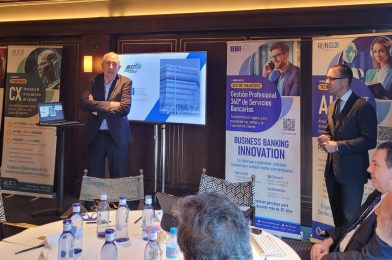At MST Holding, we firmly believe that talent knows no borders. And from the International Business Unit (IBU), we wanted to prove it with actions. Over the past year, we have launched one of the most ambitious and transformative projects of our international strategy: the Relocation Plan, an initiative designed to attract native talent from their countries of origin and ensure their full integration in Barcelona, supporting them from the very first moment with a comprehensive relocation program, carefully managed down to the smallest detail.
In an increasingly competitive and globalized environment, where multilingual and multicultural customer service has become a key advantage, having native professionals who understand not only the language but also the cultural nuances of their countries is essential to guarantee an excellent customer experience. But going beyond international recruitment and committing to a truly human approach to mobility has been the differentiating factor of this program.
What is the Relocation Plan?
The Relocation Plan is much more than an international hiring program. It is a comprehensive value proposition that enables MST Holding to attract, welcome, and integrate qualified international talent for our multilingual BPO services, based in Barcelona.
From the very first contact with the candidate, the goal is clear: build trust, provide guarantees, and offer a positive arrival experience that encourages stability and long-term commitment. To achieve this, the plan includes a set of practical and human measures that address the main barriers international professionals usually face when deciding to move to another country.
What does this program include?
The Relocation Plan has been designed to minimize uncertainty and facilitate every aspect of relocation and integration. Among its components are:
- Flight ticket from the country of origin, managed directly by MST, to ensure a safe and comfortable arrival.
- Guaranteed accommodation during the first months, in well-located, central rooms with good transport connections, making the first stage stress-free.
- Intensive language course, focused on Spanish and Catalan if needed, enabling new talent to adapt confidently both at work and in daily life in the city.
- Personalized assistance with administrative procedures: city registration, social security number, opening a bank account, health card… all those details that can feel overwhelming upon arriving in a new country.
- Support from the HR and Corporate Culture team, providing guidance, emotional support, and active listening throughout the adaptation process.
In the words of one HR team member:
“We didn’t just want to hire someone for a position. We wanted to accompany a person through an important stage in their life, with sensitivity and closeness. That’s what makes the difference.”
Why do we do it?
In a context where international mobility has accelerated but also faces many challenges, the Relocation Plan is based on three key convictions we share as a unit and as a company:
1. Because well-being matters
We know that one of the main reasons many foreign professionals abandon their projects abroad is due to emotional and logistical factors: the stress of moving, lack of a social network, housing difficulties, or financial insecurity in the first months.
Our program aims to reduce that negative impact, supporting people through their adaptation and offering a stable environment in their first steps. We believe that when personal well-being is cared for, professional performance flourishes.
2. Because we want a complete employee experience
Our vision of talent goes beyond technical skills. We are committed to creating an employee experience in which each person feels valued, respected, and part of something bigger.
The Relocation Plan reflects this philosophy: we care about keeping our professionals motivated, comfortable, and excited. We want them to see MST as a place where they can grow and develop.
3. Because Barcelona is an opportunity… if managed well
Barcelona is a multicultural, vibrant, and attractive city. But it can also be a challenge for those arriving without a support network or local knowledge. With the Relocation Plan, we aim to turn that opportunity into a sustainable reality, helping talent put down roots and find their place in this unique city.
Initial results: Numbers that speak for themselves
The Relocation Plan was launched as a pilot in mid-last year, and since then, the results have been more than positive:
- Recruitment of native talent from France, Italy, Germany, and the Netherlands, for multichannel customer service projects for international clients across various sectors.
- High satisfaction rates among participating employees, who especially value the human support received and the sense of security during their first months.
- A retention rate that far exceeds the market average for international profiles, reinforcing our commitment to well-managed integration.
- Strengthening of MST’s international employer brand, consolidating our position as an attractive company committed to global talent.
A strategic commitment aligned with our values
The Relocation Plan is not a one-off gesture or a marketing move. It is a strategic commitment aligned with our company values: people orientation, commitment to quality, and an international outlook.
It strengthens our ability to offer high-quality native services, improves our clients’ experience, and projects the image of an innovative, sensitive, and global company.
Moreover, this initiative perfectly aligns with current labor market trends: more and more professionals value not only salary or working conditions, but also the support they receive, company culture, and work-life balance. In this sense, MST Holding makes the difference.
And now… what’s next?
The Relocation Plan is here to stay, and in the coming months we will continue working to expand, enrich, and adapt it to new profiles and nationalities. We want to keep building a strong, cohesive, and committed international community that reflects the richness and diversity of our environment.
From the IBU, we would like to thank all the areas involved—HR, Training, IT, Legal, Corporate Culture, and of course, the operational teams—that have made this initiative a reality. Working together, we are building a truly global talent experience, with our heart rooted in the local.










